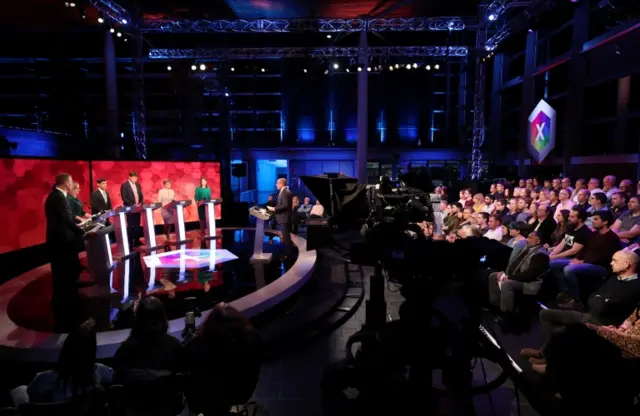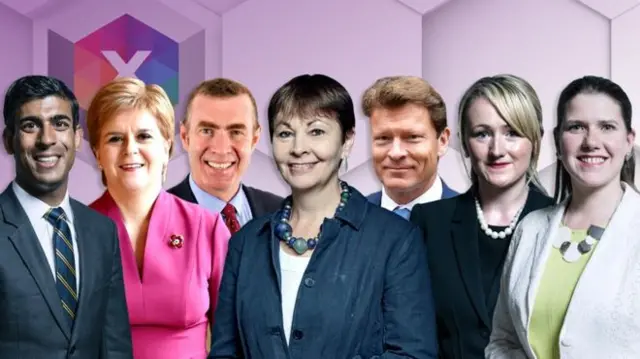What just happened?published at 20:45 GMT 29 November 2019
 Image source, Getty Images
Image source, Getty Images- The debate began on a sombre note, with many of the politicians choosing to mention the London Bridge attack in their opening statements.
- Focus then turned to how to tackle security issues, with little disagreement on supporting police.
- There was a row between Labour and Tory figures over spending. The Conservatives' Rishi Sunak called Labour's plans "absolutely reckless", while Labour's Rebecca Long-Bailey said her party was the only one with a "credible and detailed costing plan".
- There were heated exchanges over Brexit later in the debate, with Boris Johnson's claim that he can "get Brexit done" within weeks described as "a lie" by the Green's Caroline Lucas and Jeremy Corbyn's position criticised by Plaid Cymru's Adam Price.
- Lib Dem leader Jo Swinson compared leaving the EU to "episode one of a 10 season box set", adding that "if you don't like what you've seen up to now you don't have to watch the rest."
- The first major clash came between SNP leader Nicola Sturgeon and the Brexit Party's Richard Tice over a no-deal Brexit. Mr Tice said "that's not how you negotiate" after Ms Sturgeon asked whether the Conservatives would rule out no-deal.
- But perhaps the most passionate part of the debate focused on the NHS. Three of the participants gave personal stories of their experiences to emphasise why it's so important to them.
- Other issues covered in the debate included immigration, climate change and trust.


